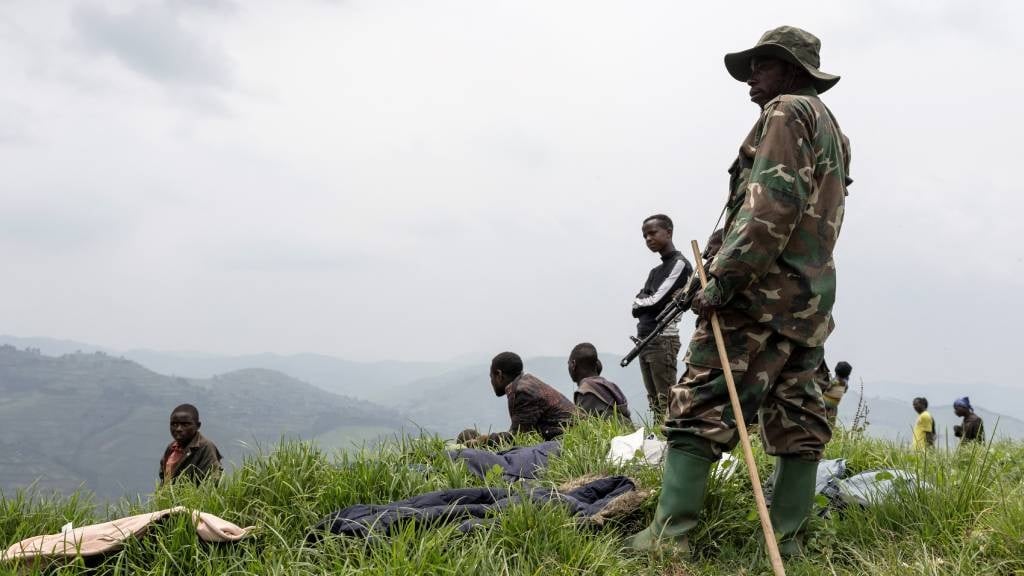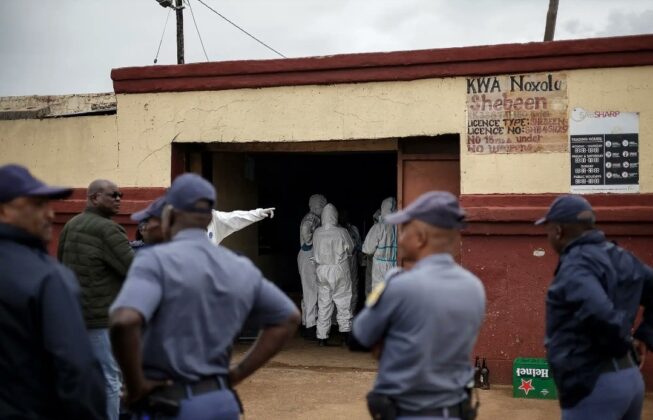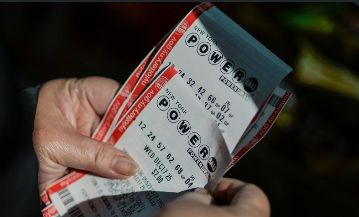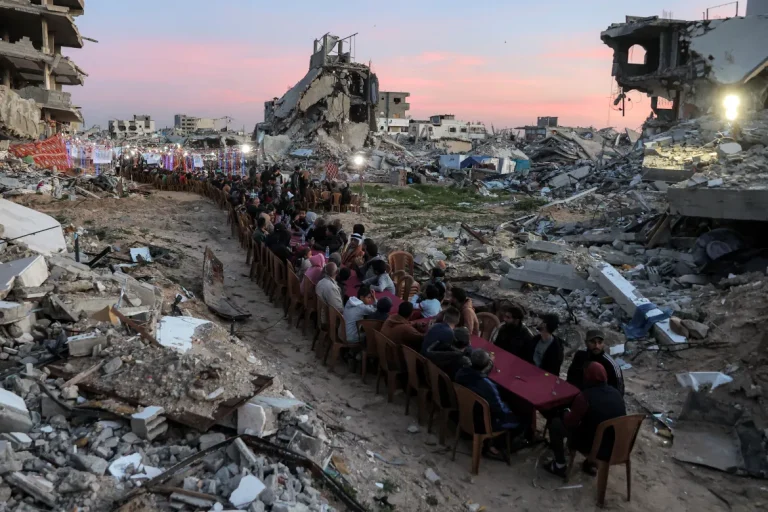
M23 rebel soldiers pose in the Coltan mining shafts near Rubaya. Image: Camille Laffont via AFP.
(The Post News)– Under the watchful eyes of M23 rebels in Rubaya’s rising terrain, men in splash boots carry sacks of crushed rocks uphill.https://www.thepostnews.net/2025/06/21/m23-rebels-seize-heineken-facilities-in-eastern-congo-amid-escalating-conflict/
Reports state laborers haul coltan ore, an essential mineral powering modern technology, before M23 Rebels take control of the mines. The mineral is then loaded onto motorbikes and transported thousands of kilometers to Asia.
M23 Turning Ore into Tantalum
In Asia, manufacturers refine ore into tantalum, a high-temperature-resistant metal worth over $300/kg, essential for electronics, aerospace, and turbines. Rubaya, controlled by M23 Rebels, produces about 15% of the world’s coltan, mined by impoverished locals earning a few dollars daily in conflict zones.
The mine is a key prize in decades-long conflicts, with armed groups battling for control, shaping political and military power. In April 2024, M23 rebels seized Rubaya, looting its valuable minerals to fund their revolution, claiming to protect Congolese Tutsis.
Heavily armed M23 rebels captured additional mineral-rich territories in eastern DRC, expanding influence and intensifying tensions with Kinshasa and neighbors. These mineral resources drew international attention while M23 and the DRC engaged in Doha, Qatar, peace talks mediated by the United States.
The United States offered billions of dollars in potential investment. The U.S. further promised economic incentives if hostilities ceased and regional stability was achieved.
U.S. Sanctions and Provocative Waiver
On Tuesday, the U.S. Treasury sanctioned additional actors in Congo’s mineral trade, including PARECO-FF, which controlled Rubaya from 2022 to 2024. PARECO-FF declined to comment, while a senior U.S. official explained M23 rebels avoided sanctions because it has remained sanctioned since 2013 for waging war.
John K. Hurley, U.S. Treasury under secretary for terrorism and financial intelligence, vowed to act against groups, including M23, that block access to critical defense minerals. Meanwhile, Jason Stearns, a former Congo investigator, called M23’s exemption astonishing, suggesting it aimed to preserve progress in ongoing Doha peace discussions.
M23’s territorial gains mark the most significant threat to Kinshasa in two decades, rooted in Rwanda’s 1994 genocide that killed one million Tutsis. Officials from M23 rebels, Rwanda, and Congo offered no comments, while Congolese leaders repeatedly accused Rwanda of provoking conflict to seize mineral wealth.
Moreover, a December United Nations report revealed coltan trade expanded rapidly after M23’s Rubaya takeover, with rebels establishing their mining administration. This administration supervises extraction, commerce, transportation, and taxation, consolidating rebel control over one of the world’s most valuable, contested ores.https://www.sabcnews.com/sabcnews/inside-the-mine-that-feeds-the-tech-world-and-funds-drcs-rebels/



